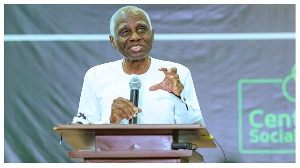Angola marked this Sunday 19 years of peace and the end of long-armed conflicts. On April 4, 2002, the Angolan government and the main opposition party UNITA put an end to 27 years of war, with the signing of the peace and national reconciliation agreements.
A national public holiday celebrated across the country, this year the main event took place in Cabinda province and was led by the Vice President of the Republic of Angola Bornito de Sousa.
In Angola, Peace Day commemorates the end of the Angolan Civil War on April 4, 2002. Follow us for Around the Globe #trivia. #Angola pic.twitter.com/WNgxNN6MqG
— AroundTheGlobeTrivia (@ATGlobeTrivia) April 4, 2021
He addressed the Angolan population: "After the National Independence on November 11, 1975, peace is certainly the greatest achievement of the Angolan people. After long years of destruction of lives and economic and social infrastructure and the diversion of thousands of young people from promoting the construction and development of Angola, today the Angolans value more than anyone the benefits of peace and political and social stability".
Queen Nzinga of the Mbundu people in Angola defeated the Portuguese Army twice in 1644 and 1647. She personally led her armies.
— African History Book (@AfricanHistoryB) March 30, 2021
In 2002, a statue of her in Kinaxixi was dedicated by then President Dos Santos to celebrate Angola's 27th anniversary of independence. pic.twitter.com/vqpNBJFdbl
In Luanda, several figures connected to the central government and diplomatic corps attended the raising of the flag and the laying of a wreath at the Monumento do Soldado Desconhecido -- located on the waterfront in the capital city.
The signing of the peace agreement on April 4 2002 was preceded by several negotiations -- including the Bicesse agreement signed in Portugal on May 31 in 1991, and the Lusaka protocol signed on November 20 in 1994.

















